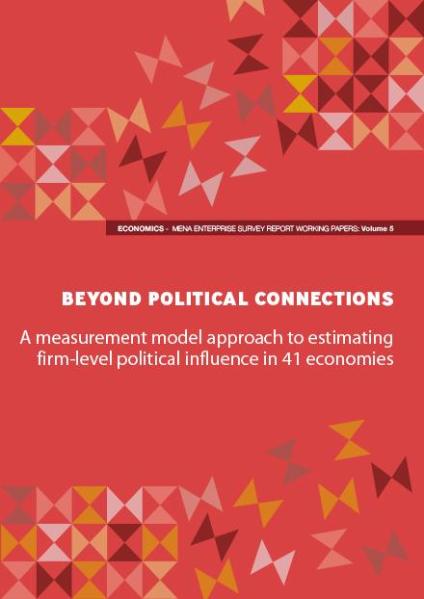
Description
All over the world, companies exert political influence. While this influence varies in its intensity, form and effectiveness, it is widely understood to be in competition with the interests of other firms, groups and the public at large. Political influence is greater in economies with poorer governance but more disperse in those with better governance. Within economies, higher influence is associated with a higher likelihood of reporting a small number of competitors, higher sales and lower labour inputs relative to sales.
Most analyses show large gains to firms with strong political connections. But while these connections may result in influence, that influence may be dampened or enhanced by particular combinations of other political interactions, including through legal channels, such as business associations, or through generally illegal ones, like bribery.
Political influence is a social construct that cannot be directly observed. Using an original, firm-level dataset from 41 diverse economies (mainly in Europe, Central Asia, the Middle East and North Africa) we try to understand how firms engage in interactions with public officials to gain influence. The analysis relies on the Enterprise Surveys, conducted by the EIB, EBRD and the World Bank. This is the fifth of nine working papers supporting the full report: Unlocking sustainable growth in the Middle East and North Africa private sector.
Unlocking Sustainable Private Sector Growth in the Middle East and North Africa
Surveys of nearly 6 000 businesses in Egypt, Jordan, Lebanon, Morocco, Tunisia and the West Bank and Gaza shed light on the state of the private sector in the Middle East and North Africa.
MENA Enterprise Survey Report Working Papers
- MENA Enterprise Survey Report Working Papers: Volume 1 - Access to finance in the Middle East and North Africa
- MENA Enterprise Survey Report Working Papers: Volume 2 - Jobs, access to credit and informality in the Middle East and North Africa
- MENA Enterprise Survey Report Working Papers: Volume 3 - The upside of digitalisation after COVID-19
- MENA Enterprise Survey Report Working Papers: Volume 4 - Small and medium enterprises in emerging economies: The Achilles’ heel of corporate ESG responsibility practices?
- MENA Enterprise Survey Report Working Papers: Volume 6 - Trade and innovation in the Middle East and North Africa
- MENA Enterprise Survey Report Working Papers: Volume 7 - Management practices and the partial government ownership of firms in the Middle East and North Africa
- MENA Enterprise Survey Report Working Papers: Volume 8 - The human capital of firms and the formal training of workers
- MENA Enterprise Survey Report Working Papers: Volume 9 - Green investment by firms


